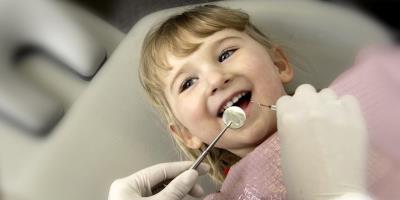
Almost 2.26 million school days are missed every year in Canada due to dental-related illness, according to the Canadian Health Measures Survey.
Dentist Maryam Amin says it's not uncommon for dentists to encounter young children with 15 or more decayed teeth.
"Many parents simply don't know how to prevent cavities in kids, or they don't believe they need to treat baby teeth, or-in the vast majority of cases-they can't afford to treat them," explained Amin, a pediatric dentistry professor in the University of Alberta's Faculty of Medicine & Dentistry.
The statistics support her experience: 56 per cent of Canadian children have been affected by tooth decay, and one-third of all day surgeries for children under the age of five is for dental reasons.
"Children who have toothaches and abscesses may be malnourished because they can't chew certain foods or they may be sleep deprived," she added. "And both of those health issues may impact their cognitive development and, ultimately, performance at school."
That's not all: Almost 2.26 million school days are missed every year in Canada due to dental-related illness, according to the Canadian Health Measures Survey.
"The simple answer would be improving access to care," said Amin. "The more complex answer would be a societal recognition of oral health as an equally important facet of overall health."
Identifying tooth pain in children
"Often, young children don't communicate that their teeth hurt," pointed out Amin. This means parents may be mistakenly identifying their children as picky eaters, poor sleepers and socially awkward when toothaches are the actual culprit.
"One mom told me her five-year-old daughter never smiled. The little girl had seen her discoloured teeth in the mirror and thought they were ugly," said Amin. "If tooth decay is affecting children's self-esteem, that's going to impact school performance, as well."
Left untreated, cavities spread much quicker in baby teeth.
"Dentists try to save baby teeth because they are important for speech development, chewing food and creating the pathway for adult teeth eruption," explained Amin. "Also, children who get cavities in their baby teeth are more susceptible to get cavities in their adult teeth."
The good news is that research shows that when oral problems are treated and children are not in pain, their grades improve, she added.
If you are concerned your child is suffering from dental decay, visit a dentist.
"Unfortunately, there are very few options for families who can't afford dental care," contended Amin.
In fact, one study showed that 80 per cent of dental decay is experienced in 25 per cent of children, and 80 per cent of decay is experienced in low-income children aged two to five years remains untreated.
"There's a tremendous and unacceptable degree of oral health disparity in our society that needs to be addressed," said Amin.